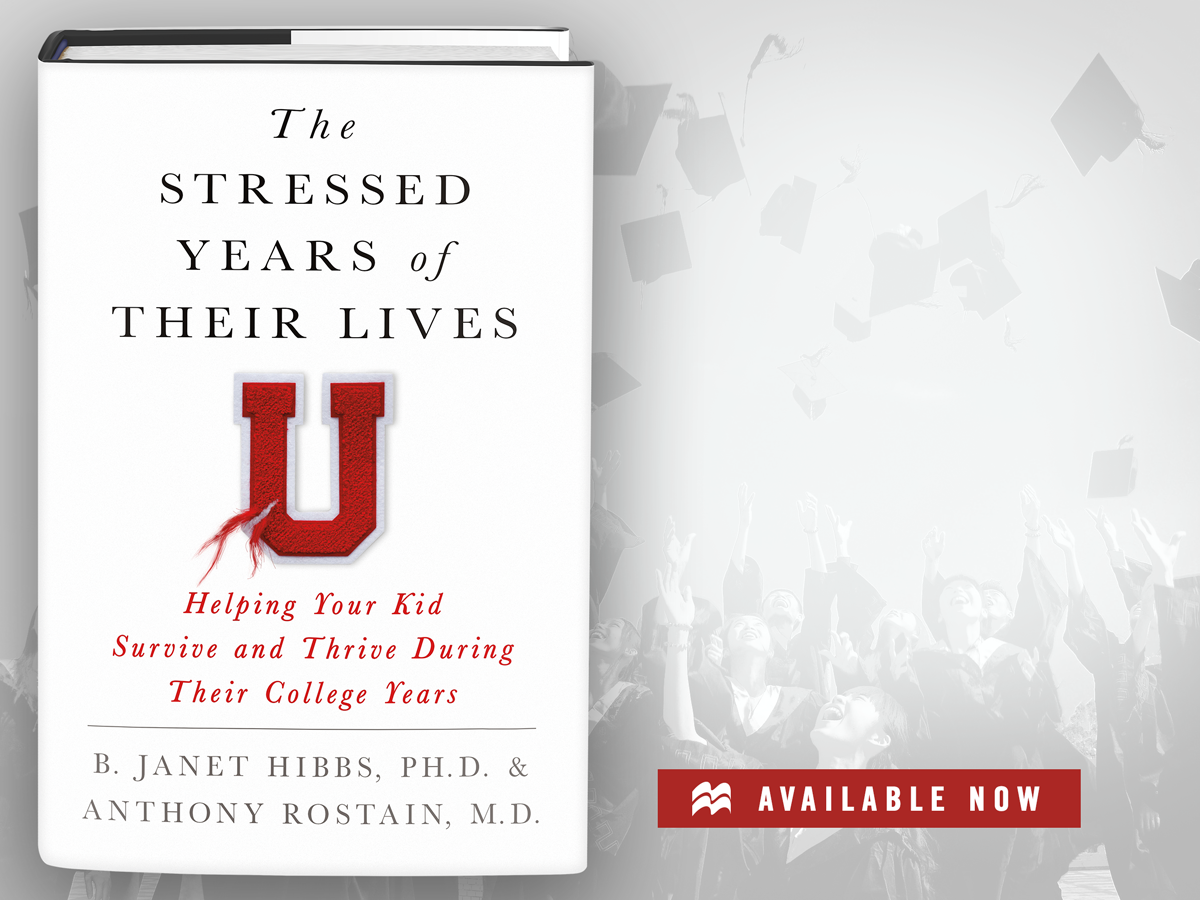Welcome to our special section, Thrive on Campus, devoted to covering the urgent issue of mental health among college and university students from all angles. If you are a college student, we invite you to apply to be an Editor-at-Large, or to simply contribute (please tag your pieces ThriveOnCampus). We welcome faculty, clinicians, and graduates to contribute as well. Read more here.
This week, during the annual end-of-semester frenzy on campuses across America, a student interviewed us for a university magazine article about how colleges are meeting today’s mental health challenges. She’d read about the astronomic rise of anxiety and depression, and the accompanying increased rate of self-harm on campus, up for the eighth consecutive year. Her initial positive impression of her college’s counseling center was challenged by fellow students who reported up to a 40-day wait for an appointment. She was distraught to learn that her university spent four times the budget on athletics than on mental health care. She asked, “What are colleges doing to meet the enormous demand for services?” And, “Who’s responsible for a student’s mental health? Colleges? Parents? Students?”
We reassured her that college administrators are acutely aware of the current youth mental health crisis and have responded accordingly with increased counseling staff along with the addition of health and wellness programs, peer-led mental health awareness/support groups, such as JED and Active Minds, and “failure czars,” all designed to build resilience in the face of inevitable stumbles. Many campuses host petting stations during midterms and finals, where friendly dogs and cats bring smiles, affection and a bit of tranquility.
Other programmatic changes are also afoot. The hollow and harmful reduction of students’ self-worth to a numeric score is contributing to widespread self-doubt, chronic anxiety and “destructive perfectionism.” Recognizing this, some colleges have dropped SAT requirementsto reduce the competitively crazed admissions’ process. Recently, Stanford stopped publicizing their dishearteningly high ratio of qualified applicants to acceptances.
While colleges are offering more integrated mental health services for the 60 percent of young adults who will experience a mental health disorder by age 25, only one in four students who need services are receiving them, and 80 percent of students who commit suicide during college were never clients in campus counseling. Why is this happening? In published surveys of college student mental health, the majority of those admitting to suicidal thoughts report they aren’t seeking help because they don’t have the time, they believe they can handle their problems on their own, or they don’t view this state of mind as requiring treatment! Here’s where colleges are looking to parents to partner with them to better prepare youth for the challenges ahead.
Long before their kids depart for college, parents need to adjust their earlier intensive (hovering or snowplowing) parenting and instead, promote the social-emotional skills that are highly linked to success in college (and life beyond). These life skills include: owning up to one’s mistakes, being able to bounce back from bombing a test or losing a close relationship, practicing self-discipline and risk management, and gaining enough self-awareness and openness to seek help and support from others when it’s appropriate. Parents can boost maturity in their kids by practicing these listening skills — holding back judgment, staying open to what’s on their minds, inquiring about what’s going on with them, and explicitly expressing a belief in the importance of honest dialogue. It’s also important to destigmatize mental illness by discussing “what runs in the family” and by sharing past experiences with anxiety, depression and alcohol and substance use.
Encouragingly, Gen Zers report less stigma about mental illness and greater willingness to seek help than was true in prior generations. They’re in the developmental stage of gaining freedom, making choices, testing limits and taking risks, hopefully in safe-enough circumstances. Given that we’re all living in an age of uncertainty and societal change, it’s important to remember fundamental principles like taking care of one’s mind and body, and developing healthy habits around diet, exercise, sleep and use of information technology (i.e. smartphones).
So if you’re a college student waiting in the queue to get an appointment at the counseling office, nice job! That’s a sign of maturity and good judgment. But what if the delay to get an appointment is too long and you can’t wait? Get a referral for a mental health clinician in your town, join a peer support group, practice mindfulness, go for a walk or stop at the gym, and pet the emotional support dogs. It’s probably time to sign off from your social media page and go hang out with a friend.
Parents: If your kid tells you they’re going for professional help, that’s a sign of a problem-solving mindset — an indicator that they’re learning to face their issues. Congratulations.
Our interview concluded with a question about our recently published book, The Stressed Years of Their Lives. “Who’s it for?” It’s a book that provides solutions, strategies and solidarity for parents who want to help their students avoid, resolve, or recover from a mental health problem or crisis. It’s also a book to give hope and support to students, through the stories of their peers. In short, you are not alone. Help is here.
B. Janet Hibbs, Ph.D. and Anthony L. Rostain, M.D., M.A.
Co-Authors of The Stressed Years of Their Lives: Helping Your Kid Survive and Thrive During Their College Years. St. Martins Press, April, 2019.
Subscribe here for all the latest news on how you can keep Thriving.
More on Mental Health on Campus:
What Campus Mental Health Centers Are Doing to Keep Up With Student Need
If You’re a Student Who’s Struggling With Mental Health, These 7 Tips Will Help
The Hidden Stress of RAs in the Student Mental Health Crisis



